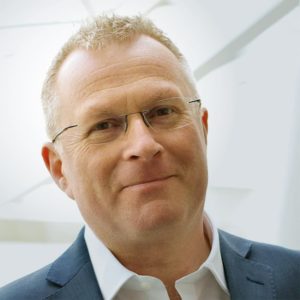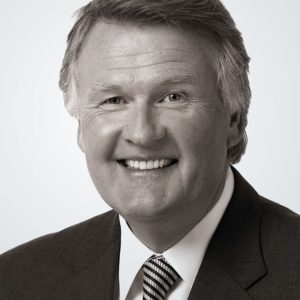Need to know for 2021
26th February 2021 | Mark Davies, Frank Cespedes and Phil Styrlund
Q: What do you see as the “new sales normal” emerging post-Covid? What will be different from before over the longer term?
Mark Davies: A few things, all of which were trends that were occurring anyway (the Covid-forced recession has just accelerated these trends). Firstly, the trend whereby customers buy via digital channels will intensify. This is because customers know what they want and buying digitally is more cost-effective; on the supply side, it is also more cost-effective. Contrasting with this, where suppliers can add value (with higher-opportunity customers) the “direct” selling business model will shift towards a Strategic Account Management approach. Sales will divide into digital (for more transactional sales) and Strategic Account Management (for higher-value and more complex sales).
Secondly, the use of Zoom (or similar) will continue, especially for global and remote customers. This has benefits and drawbacks. Cost reduction, time-management and accessibility are positives. However, the message that is delivered must be crisp and precise, and probably delivered to more senior executives. Again, this has been a developing trend in sales, but now looks set to become the norm.
Frank Cespedes: My major advice to managers is to beware of the many current predictions about “new normals.” Most are simplistic straight-line extrapolations of patterns in lockdown, contagion conditions. That said, the pandemic has demonstrated that many firms were over-paying for certain tasks in their sales models (eg lead generation, demos, some types of meetings) that can be done online with less-experienced people or, sometimes, algorithms.
Philip Styrlund: Across industries, we are seeing that virtual will become the default mode and live will become the “as-needed” engagement – a hybrid will emerge.
Most of our clients don’t see a return to full social interaction until mid 2022.
Time has been redefined. I call it the “dilation of time”. Sometimes it moves fast, sometimes slow; 30 minutes is the new hour.
What do you see as the essential sales tech need-to-know issues going forward?
Mark Davies: Technology in sales is often thought of as CRM platforms such as Salesforce and so on. I tend to think of technology having a bigger impact as a part of “what can be offered”. If the sales model is more Strategic Account Management/KAM-biased, then these customers are classified as market segments of one – as such, they will require a “unique value proposition”. Technologies such as Internet of Things, blockchain and augmented reality are readily available and should be offered by the salesperson.
Technical application, commercial pricing and establishing the correct scope of supply are all part of the salesperson’s role. These might be new skills and differentiate talent.
Time has been redefined. Sometimes it moves fast, sometimes slow; 30 minutes is the new hour.
Frank Cespedes: Any sales tech is only as good as the sales model in which it is embedded and the people who use it. In my experience, most companies need to revisit and realign their go-to-market and training processes before they can—or should—adopt sales enablement technologies. If not, it’s just tech theatre, not sales productivity.
Philip Styrlund: With regard to virtual meetings there’s a need to become expert with the basic tools: whiteboard, chat, annotation, breakout rooms – manage “mute”. Voice quality matters as much or more than video. There is a need for timely and exquisite used of graphics to augment dialogue.
What are the key sales leadership challenges on people’s agendas for 2021?
Mark Davies: I have a saying that “Strategic Account Management is more than just the Strategic Account Manager” – meaning that processes, structure and systems and other organisational aspects are critical. That said, talent is vital, so the usual sales leadership challenges of recruitment, development and coaching remain high on the agenda, especially if the sales business model and needs are shifting.
With the salesforce operating remotely there is a real need to consider mental and physical wellbeing. Historically, this has probably had a “token gesture” approach, but with the pressures from Covid not going away any time soon, this becomes an essential activity. Salespeople are typically social, relationship-driven individuals. The same energy that they get from physical meetings is probably not derived from a Zoom call sitting at the kitchen table.
As we shift towards a longer-term Strategic Account Management business model, the need to implement an appropriate reward-and-remuneration system is vital. The short-term “quarterly performance” targets based on sales is not effective for a longer-term approach. This is not Covid-specific, but if there is an accelerated shift towards a more strategic and longer-term sales cycle, leadership needs to establish more effective ways to incentivise (and this means establishing and communicating what good performance looks like).
Frank Cespedes: Hiring, training, pricing, and performance management. The fundamentals are more important when trying to recover from an economic calamity, and new buying processes are changing sales-management requirements in these core areas of business development.
The trend whereby customers buy via digital channels will intensify. This is because customers know what they want and buying digitally is more cost-effective; on the supply side, it is also more cost-effective.
Philip Styrlund: Opening new relationships virtually – it is easier to expand current relationships than to create them.
Keeping your people engaged: people are “busy yet bored”.
Prioritization of opportunities.
Keeping top sales talent: given that physical location matters less, companies can potentially steal top talent more easily because they don’t need to physically move them.
What will differentiate the sales winners in 2021?
Mark Davies: I don’t think that there is any magical new approach! Sales leaders should refine the strategies that they have in place. This means revisiting the customer portfolio segmentation, looking at the external opportunities and threats in the market and evaluating if the correct organisational standards are robust. Sales leadership needs to take a step forward and become pivotal in the formation of corporate strategy (and not just the recipient of a wider agenda).
As discussed previously, the strategy should involve recruiting, developing, coaching, and retaining the best sales talent. Without question, 2021 is going to be tough, but with strong, flexible talent working with customers who value support from suppliers, working in a collaborative manner, there is a greater chance of prospering.
Frank Cespedes: No sales model can substitute for a coherent business model and competitive strategy. As companies seek to recover from the economic carnage of the pandemic, the ability to link sales and strategy will be hallmarks of the winners, and that’s ultimately a leadership issue as well as an ongoing sales management task.
Philip Styrlund: Understanding the new acumen of VQ. Excellence in the virtual world is built on a platform, personas and principles. Platform: technology issues such as building engagement and avoiding distractions, and getting the video sound and lighting right. Personas: being a great listener, great explainer and great aligner. Principles: time and dialogue management, attention management (visuals and vocabulary), and relational alignment.




